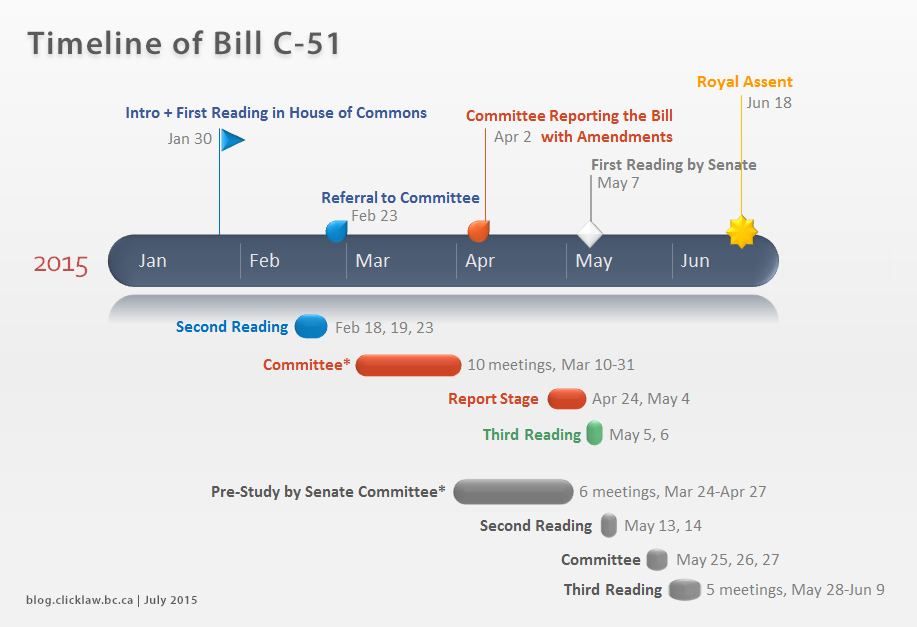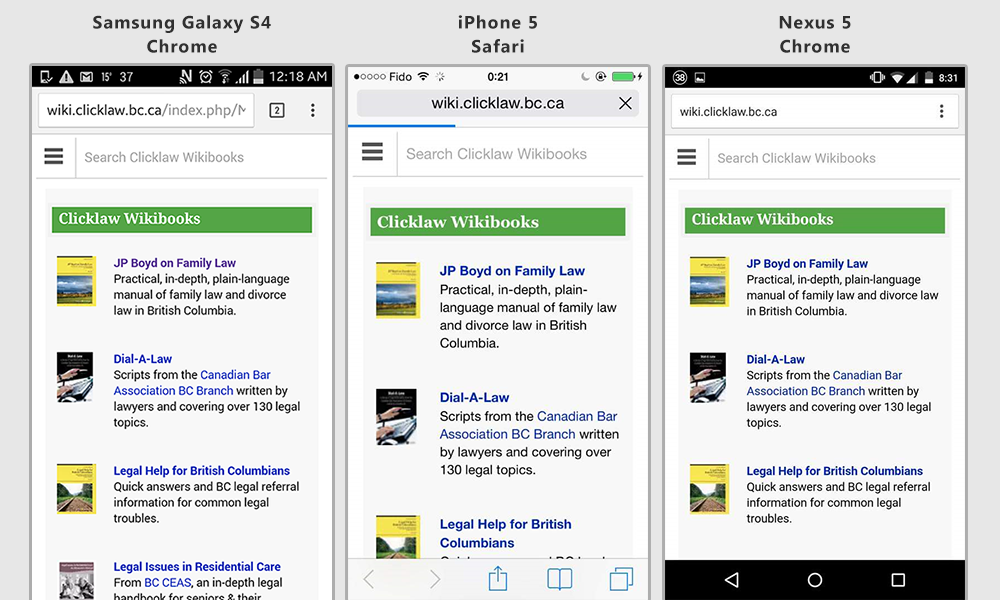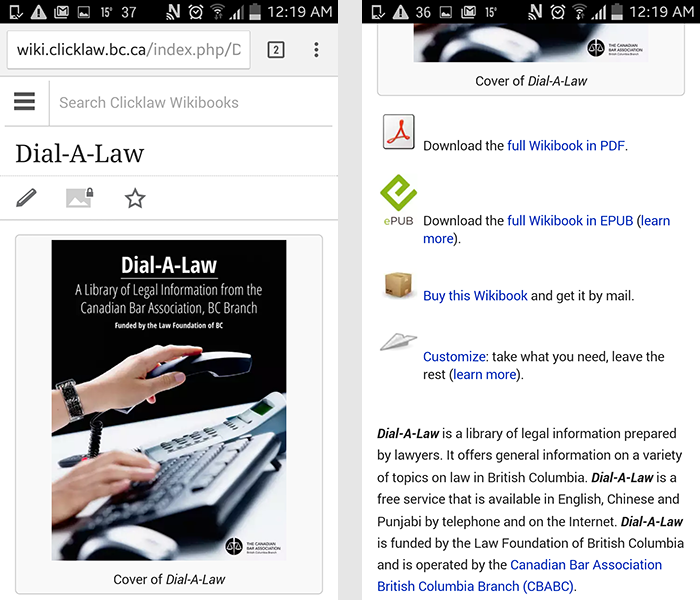Do you know how a Bill becomes Law in Canada?

How did Bill C-51 become law?
You’ve probably heard some rumblings about Bill C-51, the Anti-terrorism Act, 2015. You likely don’t hear about most bills unless you are actively interested in law or politics, but Bill C-51 has struck a chord with everyday people who are concerned about their privacy rights. Here are some places you can go to learn about Bill C-51.
Do you know how Bill C-51 became law on June 18th? We’ll try and break it down for you.
Some basics first
 Canada’s Constitution defines the government’s powers and your rights. It includes the Charter of Rights and Freedoms. The constitution is the supreme law of Canada and all of our laws must conform to it, whether made by our courts or government law-makers (legislators). More on the Constitution here.
Canada’s Constitution defines the government’s powers and your rights. It includes the Charter of Rights and Freedoms. The constitution is the supreme law of Canada and all of our laws must conform to it, whether made by our courts or government law-makers (legislators). More on the Constitution here.
There are two primary sources of Canadian law (Quebec is an exception):



